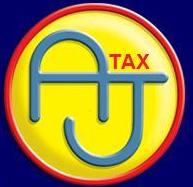Paying your kids can be a very legitimate move for small business owners.
There is no minimum age someone has to be before they can earn a salary. Think about all those baby commercials on TV – those babies are getting paid for looking cute — or mischievous.
Your child needs to be able to perform work duties and be paid the appropriate rate for the job they are doing, Hook said. Depending upon their age, certain clerical functions can be done, but it’s key to have proper documentation and that you pay the appropriate taxes. The child will also need to file a tax return.
The operative term here is “comparable wage”. Payments shouldn’t be too high, but be commensurate with what you would pay others to do the same work. Considering the current minimum wage, what you can pay could come out to quite a bit.
For example, as an accountant I create a large volume of paper waste that needs to be shredded,” he said. ” I pay an outside person about $10 per box. I paid my children the same amount to provide the same service.”
There are many advantages to paying your children, especially if you are unincorporated and the children are under 18.
If they are under 18, neither you nor your child have to pay FICA, Medicare or FUTA tax, and in many states, there is no need to pay unemployment or disability to the state department of labor, Matheson said.
And because wages are earned income, the child can put money in an IRA or Roth IRA and the funds would benefit from compound growth for many years. And under certain circumstances, those funds can be used to pay for college.
Example: If your child invested $5,000 in an Roth IRA when he was say 10, by age 65, the Roth would have grown to $119,200 at a 5% rate.
Remember Roth IRAs are tax-free. Not bad. A Roth IRA versus a regular IRA would likely be the best vehicle since the child’s tax bracket will likely be very low. The kiddie tax does not apply to earned income such as wages. It applies only to unearned income such as interest and dividends.
The child will have to file a tax return, and they’d get the standard deduction, which is the larger of $1,050 or their earned income plus $350, with the maximum equal to $6,300. If the child earns $5,000, the standard deduction is $5,350. If the child earns $6,300, they receive a standard deduction of $6,300.
When they are over 18 years old, the benefits are not quite as good since you have to pay all the taxes — FICA, FUTA, Medicare, State UI and DI — on them, but if you are going to pay someone else anyway. It might as well be your children. read more

